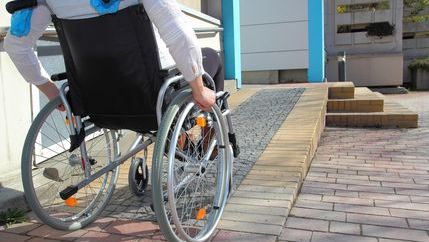
The Bill sets out to expand access to homelessness services, strengthen the responsibility of public bodies in identifying those at risk, and prioritise the allocation of social housing to those most in need. While broadly supportive of the direction of travel, Propertymark has highlighted some practical concerns around delivery.
Welcome measures
We back key reforms, including the removal of the priority need and intentionality tests, and stronger requirements for local authorities (LAs) to produce Personal Housing Plans (PHPs). These measures aim to provide more inclusive and tailored support for individuals and families facing homelessness.
We also support efforts to ensure greater social housing provision for vulnerable groups such as care leavers, and for housing associations to take a more proactive role in accepting referrals. A new duty for local authorities to maintain an accessible housing register is welcomed, though we have called for this to cover all tenures, not just social housing, to reflect the wider housing needs of older and disabled people.
The role of the private rented sector
With demand for social housing continuing to outpace supply, the private rented sector (PRS) has a vital part to play in supporting people at risk of homelessness. Propertymark is urging the Welsh Government to facilitate better communication between local authorities, landlords, and agents, to make full use of available private rented homes, particularly where they are more suitable due to location or accessibility.
Figures from the Department for Work and Pensions in May 2024 showed nearly 65,000 households were living in the Welsh PRS and receiving the Local Housing Allowance (LHA) as part of their Universal Credit award, and 57% of those households had a shortfall between their rent and their LHA payment.
Furthermore, last year we reported that in 2022-23, LAs across the UK spent £2.44 billion on delivering homelessness services and, for some, spending on temporary accommodation represents up to half of their total net budget. A number of LAs at the time reported that meeting their duty to provide temporary accommodation would result in them issuing a Section 114 notice, in effect declaring themselves bankrupt.
The PRS in Wales is already subject to high levels of regulation following the Renting Homes (Wales) Act 2016. We caution the Welsh Government against further changes or the introduction of rent controls, which risk discouraging investment at a time when the sector’s contribution is needed most.
Implementation challenges
While the Bill’s ambitions are commendable, Propertymark has raised concerns about the feasibility of delivery without additional support. New responsibilities will place extra pressure on housing and support teams, who are already grappling with staff shortages and high caseloads.
We have called for increased and sustained investment in the Housing Support Grant and fairer funding settlements for local authorities. Additionally, we recommend a phased rollout of the legislation to facilitate staff training and a manageable transition to new working practices.
Monitoring and future engagement
Propertymark will continue to seek clarity on key areas left to secondary legislation, including eligibility criteria for social housing, the structure of common housing registers, and requirements for trauma-informed service delivery.
We are committed to working with the Welsh Government and partners across the housing sector to ensure the Bill delivers positive outcomes without unintended consequences, such as increased reliance on temporary accommodation or greater pressure on the PRS.






